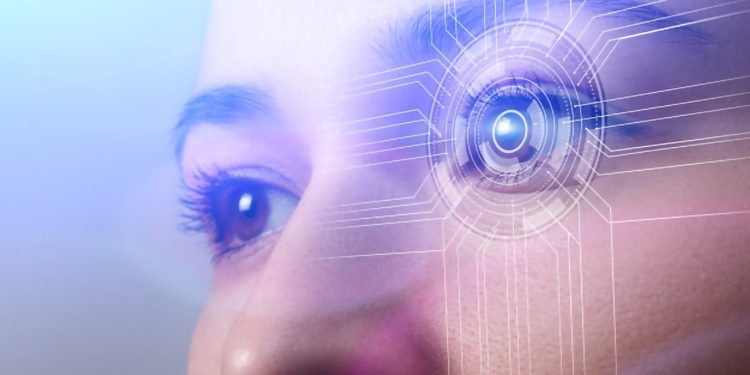Worldcoin is raising eyebrows due to its Big Brother biometric elements, with many questioning the company’s privacy practices and use of personal data.
Worldcoin, created by OpenAI CEO Sam Altman, verifies a user’s identity by scanning their iris. The image is then converted into a code, which is saved on a decentralized blockchain that can’t be tampered with, the company claims. Those who have agreed to participate and scan their irises are given a digital ID or, in some countries, are offered free crypto—a WLD coin that the company created, Reuters reports.
According to Worldcoin, more than two million users have signed up for the beta testing stage, with additional efforts set to launch worldwide. Eventually, the company plans to use its iris-scanning technology as part of a worldwide digital identity system.
Skepticism About Benevolent Overlords
The project has garnered a mixed reception, including criticism and unease from many people. Worldcoin is a private centralized company that’s taking on the role of identity verification, which has traditionally been handled by public governments.
“Make a Venn diagram involving things that people find disconcerting in the modern world—surveillance, AI, billionaire supervillains, and strange digital money. If you look at the overlap of those things, right in the middle is Worldcoin,” said James Wester, Head of Cryptocurrency at Javelin Strategy & Research.
“It hits every possible thing that we’re a little worried about—Sam Altman offering to scan your biometrics so that you can prove you’re human in a world of AI and surveillance, and giving you some cryptocurrency if you do it.”
Should Identity Verification Be Done by the State?
If successful, Worldcoin would centralize identity verification, and according to DeFi evangelists, centralization is the problem. That’s because the promise of cryptocurrency is that its control will not be concentrated in the hands of a few—whether within the government or the private sector.
“Why do I need to have a third-party verifier named ‘the state’ verify who I am?” Wester said. “We should be able to provide identity of who we are with a decentralized identity, by collecting disparate pieces of information on a blockchain that can be accessed with permission. That’s the kind of stuff that we should be able to do in a modern economy without the state.
“Waiting for the government to officially recognize who I am shouldn’t be the only way to prove my identity. I should be able to show who I am just by being myself—my physical presence, my unique features like fingerprints, and the fact that other people know me. So, I could use a mix of things like my biometrics, government ID, and maybe even people who can vouch for me.”
Decentralized Identity Shows Your Age
Advocates of decentralized ID seek to exist in a world where there is no need to trust a company or a government—where identity element verification can happen without having to know who the person on the other side of an interaction is. This would allow a person to present only the information that’s needed for the transaction instead of also revealing non-pertinent information.
“If you want to go buy a six-pack of beer, and you’re over 21, you currently show an ID which has all sorts of personal information—birthdate, address, weight, eye color, etc. But the guy behind the counter doesn’t really need to know that. He just needs to know if you are over 21,” Wester said.
In a world of decentralized identity, it should be possible to give permission to a merchant so age can be verified without revealing any other identifying elements. Although Worldcoin has similar trappings, it’s not decentralized. In fact, much of the skepticism about Worldcoin regards the lack of clarity around its data collection, where it’s housed, who has access to it, and who’s protecting it.
“From what I’ve seen, there’s a whole lot of ‘trust us’ in there,” Wester said. “But if this is going to be an identity database, there has to be full transparency across everything. That’s where a lot of the folks who are on the decentralized digital ID front look at this and say: ‘This is the exact opposite of what we want.’”
Supervillain Optics
Altman’s OpenAI is projected to automate many jobs, and Worldcoin’s retina scan digital ID is leaning into this Big Brother persona. “Even he admits that it sounds kind of creepy,” Wester said. “It’s almost as though he has said, ‘You know what, I’m just going to lean into the supervillain thing. I can’t get away from it, so I’m going to lean into it. We’re going to take your biometrics. Why? Oh, but it’s good for you. Why? Because you will be able to prove who you are. You’re going to get all these good things that we really can’t quite verify right now but in the future will be really, really valuable










